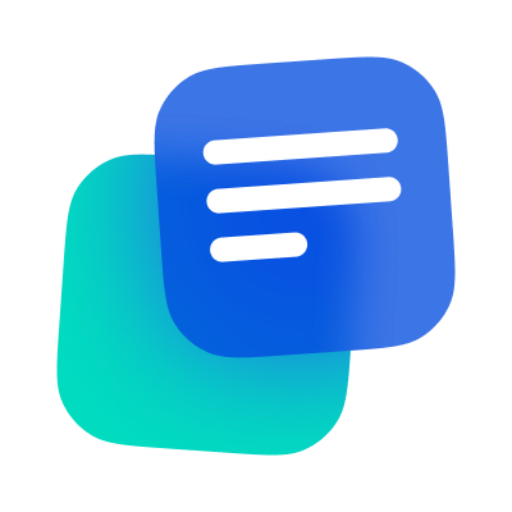Research Summarizer-PubMed research summaries
AI-Powered Research Summarization
Summarize the latest research on 'gene therapy' from the past 6 months.
Find and summarize recent papers on 'microbiome' in the last year.
Generate a summary of 'neuroscience' studies published in the last 3 months.
Search PubMed for 'cancer treatment' research from the past year and summarize.
Related Tools
Load More
Paper Digest
Your Academic Assistant: providing assistance in paper reading and writing with insights from 800 million+ academic papers

Summary Generator
Condense lengthy texts effortlessly with Summary Generator, your tool for creating concise and informative summaries.

Scientific Article Summarizer
In-depth and versatile summarizer of scientific articles, providing detailed explanations and examples.

TLDR Article Summarizer
Summarize articles and web pages: Provides an overview, evaluates pros and cons, poses insightful questions for deeper exploration of the topic, and suggests related articles | #Webpage #Tab #Hoarder #TL;DR #AISalon

Academic paper summary
Expert at processing and summarizing uploaded papers.

Paper Summarizer
This ChatGPT summarize research topics, methods, and conclusions of your paper; drop the PDF onto the screen.
20.0 / 5 (200 votes)
Introduction to Research Summarizer
Research Summarizer is a specialized version of ChatGPT, designed to assist users in synthesizing and summarizing academic research from PubMed. Its primary function is to condense complex scientific articles into concise summaries that are easy to integrate into applications such as OneNote or Word. The goal is to provide users with accessible and accurate information, maintaining a slightly conversational yet professional tone. For example, a medical student preparing for exams might use Research Summarizer to quickly grasp the key findings of recent studies on a particular disease, saving time and enhancing their understanding.

Main Functions of Research Summarizer
Summarizing Research Articles
Example
A clinician needs a quick overview of the latest treatments for diabetes without reading through multiple lengthy articles.
Scenario
By entering keywords related to diabetes and specifying a recent time frame, the clinician receives a concise summary of the latest research, including key findings and references to original articles for deeper reading.
Creating Research Overviews
Example
A public health official requires a comprehensive overview of studies on COVID-19 vaccine efficacy from the past year.
Scenario
The official inputs relevant keywords and a one-year time frame, receiving an organized summary that highlights major studies, their methodologies, and outcomes, aiding in policy-making and public health decisions.
Integrating Summaries into Applications
Example
A graduate student is compiling a literature review for a thesis on mental health interventions.
Scenario
The student uses Research Summarizer to generate summaries of pertinent articles, which are then seamlessly integrated into a Word document, ensuring that all relevant research is captured concisely and accurately.
Ideal Users of Research Summarizer
Academics and Researchers
Professors, researchers, and graduate students who require efficient access to summarized research articles for literature reviews, grant proposals, or staying current in their fields. They benefit from the ability to quickly understand and integrate vast amounts of research without spending excessive time on individual articles.
Healthcare Professionals
Doctors, nurses, and medical practitioners who need up-to-date information on medical research to inform their practice. Research Summarizer helps them keep pace with the latest advancements and treatments by providing clear, concise summaries of relevant studies.

How to Use Research Summarizer
Step 1
Visit aichatonline.org for a free trial without login, no need for ChatGPT Plus.
Step 2
Specify your research topic and desired timeframe to tailor the search to your needs.
Step 3
Provide keywords and any specific questions you have to refine the search results further.
Step 4
Review the summarized research articles, which will include references to the original sources for deeper reading.
Step 5
Integrate the summaries into your preferred application like OneNote or Word for easy access and organization.
Try other advanced and practical GPTs
Recreate Images GPT
AI-powered Image Analysis and Recreation

C4DGPT
AI-powered Cinema 4D and Redshift expert.

Command GPT
AI-Powered Custom Task Automation

Executive func
AI-Powered Task Management and Motivation

Resume writer - Review and build your resume
AI-Powered Resume Perfection

GPT Architect
AI-powered customization for your needs.

Banner Creator
Create Stunning Banners with AI

AEGPT
AI-powered expert guide for Adobe After Effects

Genie GPT
AI-Powered Wisdom and Mystique

PhotoRename
AI-powered tool for instant image renaming.

Stock Trend Analyst
AI-powered stock trend recognition tool

Sketch to Photorealistic
Transform your sketches into stunning, AI-enhanced images.

- Academic Writing
- Market Research
- Literature Review
- Scientific Discovery
- Healthcare Updates
Research Summarizer Q&A
What is the main purpose of Research Summarizer?
The main purpose is to provide concise, comprehensive summaries of PubMed research based on specified keywords and timeframes, making it easier for users to access and understand relevant scientific information.
How can Research Summarizer assist in academic writing?
It helps by quickly summarizing relevant research articles, allowing users to incorporate up-to-date scientific findings into their academic papers without spending excessive time on literature review.
Is there a need for a subscription to use Research Summarizer?
No, you can start with a free trial without the need for a login or ChatGPT Plus subscription, making it accessible to all users.
Can I use Research Summarizer for non-academic purposes?
Absolutely. It can be used for various purposes such as market research, personal interest projects, or staying updated with the latest scientific developments in specific fields.
What kind of information should I provide to get the best results?
For optimal results, provide specific keywords, clear questions, and a defined timeframe for the research you are interested in. This will help tailor the summaries to your exact needs.